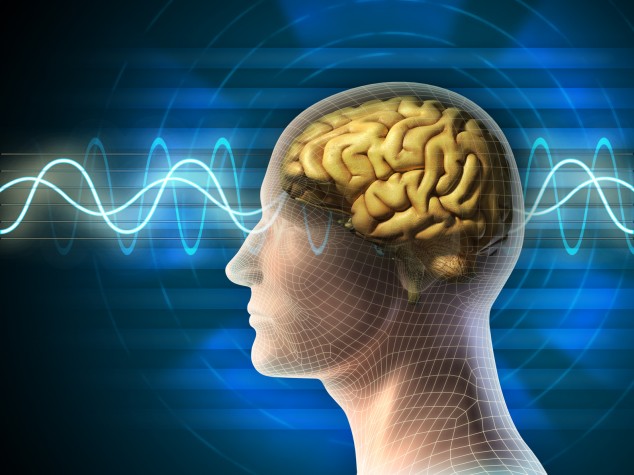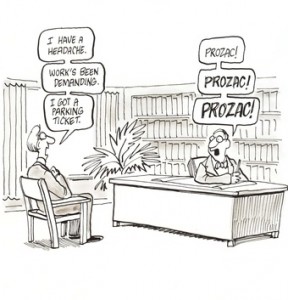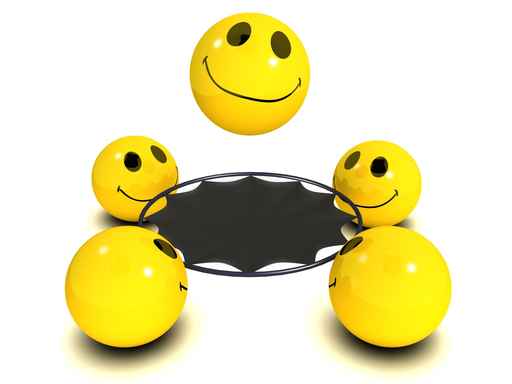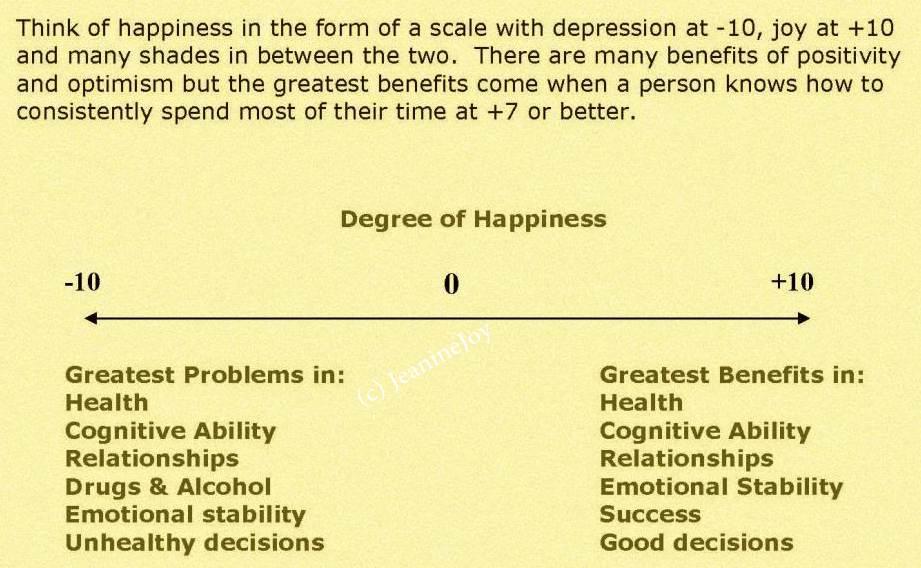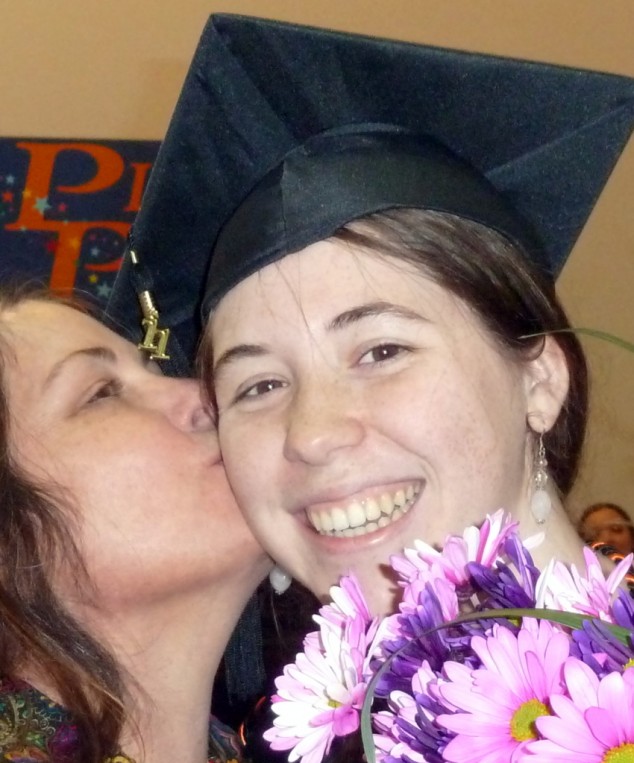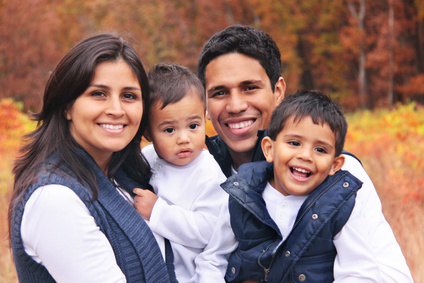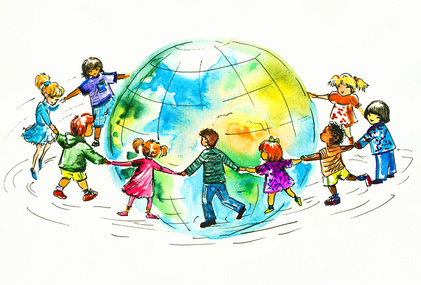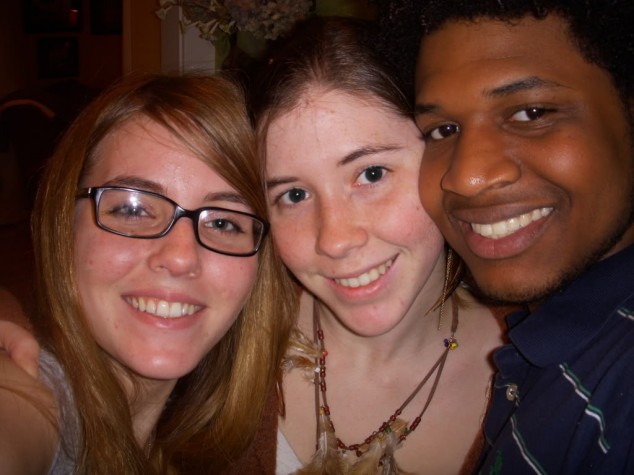Root Cause of Senseless Tragedies
Prevention: One person at a time
This publication represents the first installment in Happiness 1st Institute’s series of White Papers on the importance of understanding emotions. The papers in the series are intended to offer plain-English descriptions of the foundational elements of the importance of understanding emotions, as well as insights and practical steps you may consider for incorporating the concepts within your own organization or life. In the following pages, you will find a discussion of concepts necessary for understanding emotions an integral part of managing their impact. We believe application of these concepts will help create what we consider the epitome of enlightened emotional management.
The subject was the focus of my thesis and my later book based on my thesis, Is Punishment Ethical? We have the ability to stop crimes before they occur, before anyone suffers because of them and before someone irrevocably changes their life into one where they will be incarcerated. Why aren’t we doing it? Let’s do it. Step 1: Learn about the solution until you see it as clearly as I see it.
Keep in mind that the application of these concepts is new information for most. The study of human thriving is a relatively new area for scientific discoveries as prior efforts focused more upon decreasing the impact of problems instead of enhancing potential. This addresses the root cause of many unwanted things by creating an environment of thriving in which those undesired elements cannot flourish. Most current programs – for health, mental health, societal problems, relationship problems are directed at treating symptoms. This is directed at the root cause.
Open communication is a key characteristic of a educating others on these concepts. Consider sharing this whitepaper with other executives, board members, and key managers in your organization as well as important people in your life and the lives of your children. The new understanding of emotions has the potential to beneficially impact the world. The more information that is shared the faster those benefits can be enjoyed by people around the world.
When actions can affect human well-being or change the world, it’s not business as usual. New research in one field often takes years to reach professionals in other fields. The information about emotions coming out of may areas of science have the potential to positively impact health and well-being around the world, as well as many social issues including substance abuse, teen pregnancy, crime, recidivism rates, productivity, divorce rates and depression. We believe it is contains the keys to peace.
The issues and concepts outlined herein should provide an excellent starting point for a crucial dialogue on enhancing your organization’s understanding of emotions. For additional information, visit www.Happiness1stInstitute.com.
We are available to provide classes, private consultations as well as coaching services and collaboration with schools, prisons and non-profits.
Labels
Humans label by characteristics, behavior, and appearance. We then apply judgments based upon the labels we assign to others and ourselves.
Labels save time and help us navigate life but they can also greatly diminish outcomes.
Individual behavior varies largely due to the current emotional state of the individual. When we judge based on behavior without an understanding of the impact of emotional state on behaviors, individuals at lower emotional states tend to be judged harshly and their potential greatly underestimated.
For example, the same individual feeling despair would not respond to the same situation the way he or she would when happy.
Impact of Emotional State
In order to see the true potential in others the link between emotional state and behavior must be understood and considered during our interactions.
An individuals current emotional state has significant impacts on all of the following:
| · Behavior |
· Intelligence |
· Emotional Intelligence |
| · Health |
· Well-being |
· Resilience |
| · Relationships |
· Motivation |
· Creativity |
| · Decisions (including lifestyle, i.e., diet, exercise, alcohol, drugs, and risky behavior) |
In general, you can assume that someone behaving in undesirable ways has negative emotions that have not been responded to in of the three constructive methods.
The best response to most negative emotion in modern society involves ‘Right Responses[A] (RRs). This involves some action or a deliberate and conscious change in mindscape.
Emotions provide information to guide us. The other two appropriate responses are Fight (non-violent assertive resistance) or Flight. Suppressing or denying emotions is dysfunctional and leads to many other problems.
Ignoring a negative emotion is just as unhealthy as putting your hand on a hot stove and leaving it there to burn while ignoring the pain inflicted. Pain is information that tells us to take some action. Likewise, emotions are guidance that helps us recognize unhealthy thoughts or circumstances.
If we are judging an unhappy person based upon their behavior we are not seeing their potential. When we see their potential we are more likely to inspire them to achieve more of their potential. Potential is a terrible thing to waste.
In general, emotional states can be defined (broadly) with the following feelings:
Emotional Guidance Scale (EGSc)
Sweet Zone
| · Joy |
· Appreciation |
· Freedom |
| · Empowered |
· Love |
· Awe |
| · Passion |
· Enthusiasm |
· Eagerness |
| · Happy |
· Positive Expectation |
· Belief |
| · Inspired |
· Trust |
· Faith |
| · Optimism |
· Serenity |
· Satisfaction |
| · Fulfilled |
Hopeful Zone
| · Hopefulness |
· Gratitude |
Blah Zone
| · Contentment |
· Boredom |
· Pessimism |
| · Apathy |
Drama Zone
| · Frustration |
· Irritation |
· Impatience |
| · Overwhelmed |
· Disappointment |
Give Away Zone
| · Doubt |
· Worry |
· Blame |
| · Guilt |
· Discouragement |
Hot (Red) Zone
Powerless Zone
| · Hatred |
· Rage |
· Jealousy |
| · Insecurity |
· Fear |
· Unworthiness |
| · Grief |
· Depression |
· Despair |
| · Powerlessness |
· Learned Helplessness |
· Guardedness |
| · Hopelessness |
Emotions and Thoughts
Emotions are the response to thoughts. This fact is easily demonstrated by taking someone through a guided visualization of scenes designed to elicit emotions. As the scene changes the emotional state changes.
There are actually three levels of emotions. The most basic are felt below conscious thought. For example, if the hairs on the back of your neck stand up because of a danger you have not yet consciously been aware of that is the most basic level.
The second level consists of simple emotions that come in response to actual thoughts. For example, fear is one such emotion.
The third level is also emotions that come as the result of conscious thoughts but the thoughts are more complex, the responses are not necessarily inborn responses but trained by external third parties (parents, church, society, teachers, etc.). For example, shame. A baby and small child have no shame about their body when they are naked. This emotion is taught by third parties and would be considered a complex emotion.
Emotions are information that we are designed to be acted upon. When third party imposed negative emotions do not provide a path to better feeling emotions they set the stage for all sorts of problems including behavioral, emotional (See DSM), and health. We were not designed to suffer negative emotions on a long-term basis and when we endure them we do suffer.
Emotional Set Points
Emotional set points impact how an individual will feel in response to stimulus. For example, someone who is experiencing a lot of frustration will find more things that are frustrating in new circumstances and a person with a generally hopeful attitude will notice aspects they find generally hopeful in new situations.
Reticular Activating System (RAS)
The emotional set point is assisted by the Reticular Activating System (RAS) Filter in their brain. The RAS Filter sifts external input based on filters such as:
- Beliefs held by the individual
- Expectations of the individual
- Emotional set points of the individual[B]
- Focus of the individual
This filter only passes some information to the conscious brain and filters out a great deal of information that our senses record. This is beneficial because otherwise we would be overloaded with too much information.
However, the filters have often been programmed in ways that do not serve the individual well.
Beliefs & Limiting Beliefs
For example, if someone has a limiting belief the filter will keep information from passing to their conscious brain, thus, their ability to overcome the limiting belief is blocked or minimized.
Many individuals RAS filters are impacted by a belief that their actions will not make a difference. This condition has been termed “Learned Helplessness.” Individuals with this condition will not take actions that others (who do not hold the same limiting belief) clearly see would make a difference for the better in their life experience. They literally don’t see some beneficial actions as possibilities because their filter holds back the information. Even if they see the actions as possible their RAS filter does not allow them to imagine the potential benefits of the positive actions the way someone in a more hopeful mindset could. The RAS filter does not allow the information that conflicts with the current beliefs, expectations, and emotional set point to flow to the conscious mind. The filter does not do this out of malice or because the person lacks worthiness or societal value. The RAS filter is unbiased in that way. The belief that their actions will not make a difference results in the filter not placing opportunities (or their potential beneficial outcomes) in their conscious mind.
Learned Helplessness can apply to life in general or to a specific subject or subjects. For example, someone who does well in one area may feel paralyzed in another . This indicates that on that topic they have developed a belief that their actions will not matter.
The detrimental impact of learned helplessness are often seen in long-term poverty, addictions, and remaining in dangerous relationships.
Learned Helplessness is an example of being at the lowest end of the Emotional Guidance Scale. This belief can be changed. When the belief changes the individual will begin seeing the opportunities. The potential for positive change is amazing.
There are as many limiting beliefs as there are individuals. The best way to overcome them is to decide what beliefs would serve you best, not to try to figure out what beliefs may be limiting to you.
The filtering effect results in your conscious mind not receiving information that contradicts your beliefs so it is difficult for you to identify your own limiting beliefs. Reading inspiring books such as “The Magic of Thinking Big” by David Schwartz or “Unlimited Power” by Anthony Robbins can help identify beliefs that could be beneficial to positive motion forward. A contemporary book that is good is “Infinite Possibilities” by Mike Dooley.
Another technique is to write about your life and then ask someone else to read what you have written and help you identify limiting beliefs.
One key to identifying limiting beliefs is to look for statements with “but”. I want to, “but”, followed by some reason the individual believes he or she is limited and cannot do as desired.
Many people will argue for their limitations quite vehemently. It is best not to point out limiting beliefs unless someone is asking as they will just take a stronger position in defense of what their life has shown them to be true. If they do not understand the role of their RAS filter they won’t understand why they see so much evidence supporting their position even though their position is only true for them because of their belief. Those with different beliefs have different experiences.
Expectations
Expectations will also impact what the RAS filter allows through to the conscious mind. This has a tremendous impact on perception of others. For example, if one has formed a negative impression of an individual, he will expect to see behaviors that reflect his negative impression. It will be difficult for him to see progress, especially in the initial stages of change.
Perhaps the best advantage of understanding that our expectations color how we see others is that, once we understand this, we can see people clearly. Instead of seeing people as colored by our previous experience, we allow ourselves to develop new expectations and we will be able to see others in a different light.
If you have defined someone or something (to yourself) by their potential, your expectation (filter) will look for evidence of becoming more of who they can be. Whereas, if you have defined them (to yourself) as someone with bad behavior your filter will look for further evidence of bad behavior and ignore improvements or change.
Emotional Set Points
The emotional set point of the individual will impact what gets through the RAS filter. The filter trusts that you are intelligent and deliberately determining your focus. So, in essence, if you are frustrated often (by traffic, by co-workers, by your family, friends, and house, by spilling the coffee or tripping on something, etc.) your filter says “Oh, she/he wants to feel frustration. Look here …. here is something else that is frustrating. Oh, and look here, this is also frustrating.” Again, there is no malice. Your filter assumes you understand that you get more of what you focus upon.
Let’s take an example of this. Two individuals can go to the same restaurant, have exactly the same food, prepared in the same way to their specifications, even sit in the same place and have the same server. One who has been focused on enjoying life can have a wonderful time. The one who has been predominately frustrated will find things about the experience that are frustrating that the individual focused on enjoying life does not see (because their filter does not highlight the things that are frustrating).
The ‘big deals’ will still show up. This is not about burying ones head in the sand. It is about, however, having a positive bias on life. When you expect things to go well your filter will show you evidence of things going well. Is it a ‘big deal’ if your waitress takes two extra minutes to refill your water glass? If your focus is on enjoying life you may not even notice until she is there pouring the refreshing water – you will notice in time to thank her. If you are living in frustration you will notice that your water glass is getting low and as soon as it is empty you will feel frustration that it has not been replenished.
This is just an overview of how the various factors impact the filter.
Emotional State – Impact on Behavior
When you understand that higher emotional states equate to more desirable behaviors you will understand the importance of focusing upon helping the person move to higher and higher emotional states. Punishments tend to keep people at low emotional states and progress is very slow, if it happens at all. Helping someone with undesirable behavior feel better goes against what almost everyone has been taught from a young age. On the other hand, when you look at how things really unfold you will understand that this is the only path to permanent improvement and I will even say, eradication of much of the socially unacceptable behaviors (in time when this is understood by the masses).
Regrets & Self-criticism
Often the greatest punishments come in the form of negative self-talk.
While it is good to have a conscious about our own behaviors, understanding that we re-create ourselves throughout life and being self-critical about past mistakes just keeps us from moving forward.
When I encounter someone who has deep regret over a past decision I often ask them “If you were in that situation right now would you make the same decision?”. The answer is frequently an adamant “no!”.
My response is then “Clearly you are no longer the same person who made that decision/mistake. Why punish your current self for who you used to be? The person you are today would not do that action so why punish the person you are today?”
I believe fully understanding this not only provides relief from self condemnation but inspires others to want to continue forward motion and become even more.
Although it is a subject for another paper, long-term guilt and regret have negative health consequences.
“Higher” or “Ideal Self”
We all have a “Higher Self” or an “Ideal Self”. We create this self as we live and make decisions about who we really want to be. If we are mean to someone we create a “Higher Self” that is nicer. If someone is mean to us we create a “Higher Self” that others are nicer to. This Higher or Ideal Self” calls us. The Higher Self has achieved all the dreams we have dreamed and our job is to move in the direction of the Higher Self we have created through the living of our life. The “Higher Self” is not a stagnant ‘ideal’. It is ever evolving as we experience life. The “Higher Self” is unique to each of us. No two of us want the same exact things although there are many commonalities.
This differences in individual desires is another area where greater understanding would serve us well. We perceive the actions of others through our own lenses. If our dream is to be married to the same partner for 50+ years we may not be able to understand the perspective of another who chooses not to marry. Understanding that we each have unique desires and perspectives and that this is a wonderful thing would help not only personal relationships but national relationships. We can desire what we desire (we actually can’t help but desire what we desire) because our life has shown us that is what we believe is best for us. However, when you look for someone else to validate your desires and dreams you are asking if your desire and or dreams satisfies their perspectives which really have nothing to do with your own.
Where we are the same is that the higher we get on the EGS the better our behaviors become from the perspective of treating others well.
Violent criminals sometimes appear happy at their own actions but what is being witnessed is a sense of relief they feel in moving up the scale from somewhere in the vicinity of despair (which feels totally powerless) to somewhere like revenge where some of their power has been taken back. Their seemingly positive emotions are not joy, appreciation, or love. They are a sense of relief.
It is not necessary to commit violence in order to move up through the hot (red) zone and stabilize oneself at higher emotional set points. In fact, violence does not usually happen until they have tried to move up and someone or society has sent them back down, repeatedly.
It is quite possible to move up from despair and hopelessness through anger, rage, and revenge just using thoughts. Actions are not necessary to move up the scale. A guide in this process is often helpful.
It may seem that I am blaming those who have held others down or pushed them back down for their resulting violent behaviors. In actuality, I am not interested in trying to figure out who is to blame. Someone taught the person that pushed them back down beliefs that punishing them and limiting their power was the right way to act and the person who taught them learned it from another and so on back through time.
Your higher self says “Yes You Can” and you can verify this by thinking (and believing) “I can” and feel your emotional response to it. Your emotional response will feel better than it will when you think and feel “I can’t”
Yes, I can!
A Better World
My interest is in a better world for everyone going forward. I cannot impact or change the past but I can impact and change the future.
What is clear is what has been done in the past has not worked well for many members of the human race.
Understanding how our emotions impact our behavior and focusing on helping one another reach and sustaining ourselves at higher emotional levels will have a tremendous positive impact on the future.
Success requires that we set our intentions on the loftier goal of creating a better world and cling less to the ‘need’ to have been right in our opinions and judgments in the past.
Celebrate knowing new knowledge rather than regreting what you once did not know. Everyone has always done the best they could in the moment. Even when ‘the best in the moment’ is not good, it was the best possibility for them in that moment. Their best in other moments could be better.
There is never a time in this life when we know everything. Like children who gain new knowledge as they learn to walk, we are continuously gaining new knowledge as we live and are exposed to new concepts, ideas, experiences, and scientific discoveries. Embrace the new knowledge and leave any regrets for what you once did not know in the past. If you know enough to regret something now the person you are also knows better than that person you used to be knew. Love who you are and who you are becoming.
Benefits of Increased Positivity
When individuals reach a sustainable place in the Sweet Zone one of the first things almost everyone does is exhibit a desire for others to also enjoy that sort of emotional stability.
There are many processes to help individuals move up and to stabilize at higher emotional set points. At Happiness 1st Institute we teach over 50[C] processes to help individuals manage their own emotional set points.
We are not speaking of transient forms of happiness that are usually based upon some event, possession or other person. We are speaking of a type of happiness that provides a deep sense of inner stability, peace, well-being, and vitality that is consistent and sustainable. This sort of happiness is available to anyone who gains a greater understanding of self.
In addition to the behavioral benefits to society, there is a great deal of research that supports the benefits of happiness for individuals, their family, friends, and society in general. These include: happiness leads to greater success (Harvard Study), greater longevity (Nun study), improved health (too many studies to list – see our website for many citations and examples), better relationships of all types (again, too many studies to list), higher earnings (too many studies to list), lower crime and substance abuse[D], and increased intelligence and creativity (especially see Barbara L. Fredrickson, Ph.D.’s work and her “Broaden and Build” theory in either her research or her book, Positivity).
The type of happiness we are talking about is different. It is being who we are authentically, at our core, connected to our Higher Self and focused upon becoming as much like the Higher Self we have created as we can. This type of happiness increases resilience and gives us confidence to pursue our dreams. It does not require continual happiness but the knowledge, desire, and sureness that you can easily and quickly return to that state using skills and knowledge is always present. You are in control of you and your responses to life.
Purpose of Emotions is Guidance
Emotions are guidance. They let you know whether you are moving in the direction of becoming more like your “Higher Self” or away from who you have decided you want to be.
Think of it like the children’s game of finding a lost object where clues of ‘you’re getting warmer” or “you’re getting colder” are given and it becomes simple to follow your guidance. Positive emotions mean you are moving in the right direction and negative emotions indicate you are moving away from your goal.
Appreciate the emotions for the guidance they are.
The ‘Ideal or Higher Self’ is a view of ourselves at our best having achieved our greatest (believable) potential. This ‘Ideal self’ taps our passions, our values, and our past achievements.
“A noble man compares and estimates himself by an idea which is higher than himself; and a mean man, by one lower than himself. The one produces aspiration; the other ambition, which is the way in which a vulgar man aspires.”
~ Marcus Aurelius
“There is nothing noble about being superior to some other man. The true nobility is in being superior to your previous self.”
~ Hindu Proverb
This ‘Ideal or Higher Self’ is different from the ‘ought self’ that is the construct of things you believe that you should or ought to do based on expectations and requirements of others.
The ‘Ideal or Higher Self’ motivates you from within. The ‘ought’ self is using external criteria to motivate and may or may not be in alignment with your true goals.
What is the difference between your ‘Ideal or Higher Self’ and who you usually are in your day to day interactions? The ‘gap’ has a lot to do with what you believe you are capable of being. There is always a gap because the ‘Ideal or Higher Self’ is a moving target and this is a good thing. Some of the greatest athletes of all time focused on moving toward their ‘Ideal or Higher Self’ and continued to improve even when they were great. The ‘Ideal or Higher Self’ is a self-created self that is the best you can imagine being in any given moment. As long as you are moving in a direction that is closing the gap you can feel joyful.
Take the idea of the ‘Ideal or Higher Self’ and then look at the EGS. You will be able to easily see that the ‘Ideal or Higher Self’ is calling everyone up the scale. Our ‘Ideal or Higher Self’ lives at the high end of the scale, loving and appreciating.
You will also see that the higher you go on the scale the more empowered you feel. The lower you are on the scale the more powerless you feel.
When you feel more empowered you can often see many paths to your goals (which is why science has found that
individuals are more creative and intelligent when they are happier) – their filter has been set with a greater belief in their abilities. Therefore, they see more ways to achieve their goals.
When someone is held down, either by society or their own limiting beliefs the pull
to regain some of their power and to move up the scale gets larger and larger. When the only path(s) that are visible to the individual are ones that society abhors, they will take those paths if and when that pull becomes stronger than any resistance they have to those actions.
At the lower levels often the only path visible that will allow the individual to regain some of their personal power is a path that would never be chosen if they saw another path.
The above point is so important for understanding. Because of the feelings of being powerless the path(s) to regaining some power seem very limited. Perhaps they have tried repeatedly to regain some power in more acceptable ways but have not been understood so they were pushed back down. Over time this would result in a belief that those more socially acceptable paths are not the way because they did not work. As that happens repeatedly the paths that remain open become more appealing. Paths that would never have been considered if the socially acceptable paths had not been blocked begin to seem like the only option. Feelings of desperation begin to work on the individual until they become causative to actions. They do feel relief in those actions even when the consequences can be potentially terrible.
When society begins helping individuals move from feelings of powerlessness to better feeling places, rather than pushing them back down (because they are easier to handle in depression, despair, and helplessness than in anger or revenge) we will see massive positive changes in our crime rates. Eventually we will have the nice problem of trying to figure out what to do with all the excess capacity in our incarceration facilities.
We will see thriving among those who previously were thought to have no hope. We will see the gap for those children who today still seem unable to achieve begin to close as we help them overcome learned helplessness.
We will see massive amounts of post traumatic growth. The individuals who have come from disempowered situations who learn how to manage their own place on the EGS will be huge beneficiaries of post adversarial growth. By their experiences they have created a “Higher Self” that is far greater than the one created by someone who has lived a mild life. When they understand how to move in the direction of closing the gap consistently and deliberately we will be amazed and delighted.
Emotions are literally guidance from one of our senses. The concept of ‘five senses’ is a fallacy. We have far more than five. New research from Harvard, courtesy of the brilliant mind of Katherine Peil, and ten pages of cross disciplinary scientific research cited in her paper, Emotion: A Self-regulatory Sense, demonstrates clearly that our emotions are a sense. In fact, her position is that emotion is our oldest sense and she uses molecular biology and the biophysical processes of living systems to lead us step-by-step through this idea.
Our emotions are output from a hitherto unrecognized sense. In fact, the emotional sense is present even in simple organisms. It appears the function of the basic ‘negative’ emotions are information that helps us keep our bodies safe. The function of the positive emotions is to point us toward self-development and well-being.
The difference between the simple organisms and most humans is that they actually listen to and respond to their emotional sensory output.
Humans, on the other hand, have a tendency to ignore emotions. to suppress them, and to suffer the negative consequences of doing so in lives that are not as robust as they could be.
There is no benefit to us in ignoring the output from our emotional system, it is providing information which will improve our lives if we act upon it appropriately. Ignoring output from the emotional system leads to senseless tragedies.
Ignoring negative emotional output is no different than ignoring pain from our sense of touch. We would not put our hand on a hot stove and notice that our hand was burning and leave it there to continue to burn. When we ignore or suppress negative emotions it is no less harmful to our well-being than leaving a burning hand on a hot stove.
Emotions are information designed to guide us.
Proper Response to Emotions
The best response to most negative emotion in modern society involves ‘Right Responses[E] (RRs). This involves some action or a deliberate and conscious change in mindscape.
In an early version of K. T. Peil’s paper (Global Advances in Health and Medicine, March 2014), she stats “the modern behavior toolkit includes a creative approach response as well as avoidant reactions to emotional distress. When feeling out of balance, we can take flight or fight in defense, or we can capitalize upon our neural endowments, stay in approach mode and correctively “right” the problematic agent, Indeed, the RR should be the first choice reaction and constitute the greatest percentage of all corrective responses. But, if despite such efforts, unacceptable environmental conditions persist over time, then more assertive and aggressive (yet non-hostile) confrontational “fight” responses become appropriate, until finally a “flight” to more habitable and just environments becomes the only viable options. But whether the situation dictates a Right, Flight, or Flight response, the primary objective is to immediately identify and reduce the internal or external environmental conditions that are triggering the distress in order to self-preserve.”
Emotions are guidance and we were never designed to tolerate negative emotions for longer than it takes to complete our corrective action. That is why the many benefits of positivity are coming to light as we study positive emotions. We were designed to feel good. We were also designed to be good, which we are when we feel good.
Societal systems designed to make us feel bad and maintain that negative state are fighting against our very nature. These same systems literally create the very undesired behaviors we want to avoid.
Right Responses can be taught with knowledge and skill to become the default mode of response. Happiness 1st Institute focuses upon doing exactly that in our classes.
Morals and Values
Morals and values do have a place in the structure of things. Someone with a strong moral fiber who is repeatedly pushed to the low end of the EGS may choose options other than violence against others. Suicide is one of the options that can be more palatable to such an individual (slow or fast – in other words drugs and alcohol or those actions we currently call suicide). There are so many variations that influence the path(s) that will become acceptable and there is really no reason to analyze them extensively. Our time is much more productively spent understanding how to help individuals move up the scale where the subject of what path they would choose from a position of powerlessness is irrelevant.
Substance Abuse
In most cases, drugs and alcohol begin as a way to feel better. Individuals who know how to feel good by managing their own place on the EGS tend to drink far less. I have a large social network of such individuals and often vacation with them. Drugs and alcohol are not a big factor in our fun for the vast majority of us. We are high on life.
Drugs and alcohol are a form of self-medication. Whether addiction becomes an issue or not, learning to consciously and deliberately respond appropriately to emotional guidance can help any individual make healthier choices.
Peer Pressure
I can hear protests “What about peer pressure?”. Think about it? Isn’t giving in to peer pressure an attempt to feel better? To feel more accepted? To feel a part of something more?
Emotion can affect decisions about risk-taking in all age groups, not just adolescents, the emotion doesn’t necessarily have to be triggered from the decision situation itself even, for example. if you’re angry about an argument, you might later drive too fast on the highway.[F]
Our emotions provide guidance but what has been happening for a very long time is that the children (who are born knowing how to be joyful) are taught to pay attention to pleasing others instead of following their natural guidance. Parents, teachers, ministers, and peers say “Do this so I will feel better” and because the pressure is intense they eventually begin using others as their barometer about how to behave. This is very problematic if you are trying to please more than one other person and even more problematic if one of those people is inconsistent in what pleases them.
Society has developed a belief that without external guidance our behavior would be unacceptable. Recent findings in positive psychology refute this premise. When individuals are in a positive state they exhibit not only behaviors that society requires as ‘socially acceptable’ but behaviors that go far beyond the minimums with altruism and cooperation increasing substantially when higher levels of positive emotion are present.
Helping children understand that listening to their own emotions is important. We often speak of animals having instincts and humans having intellect. We (humans) do have instincts but we are trained not to listen to them. We all have guidance coming from within and we can hear it when we quiet our minds. What most do not do is listen to it or understand how it communicates. Our minds are powerful and important but our hearts are even more intelligent. The HeartMath Institute conducted a study that showed the heart registered responses in a predictive manner, while the brain responded after the fact to the same stimuli.[G]
Our bodies have great intelligence. We often take them for granted and overlook the intelligence of our bodies. They know how to take a single cell and turn it into a full grown human. From that single cell all the other cells are formed, ones that are eyes and ones that are toe nails. They know how to take nutrients from food and nourish our cells. They know how to regain balance when many undesired elements are introduced. When we listen to our guidance we will also receive information about what our bodies are asking for to maximize our vitality.
Studies are revealing that we make healthier choices when we feel positive emotions.[H]
Make Decisions When you Feel Happy
Education
The first step is to spread the knowledge of how to understand and use our emotional guidance systems for our own benefit and the benefit of others. This must include a deep understanding that helping those who are not behaving in acceptable ways increase their level of positive emotion is the path to their becoming productive and contributing members of society.
Pain Management
So much of medicine treats symptoms. It has been shown repeatedly and conclusively that positive emotion and optimism treat the root cause of both life threatening illnesses including cardiovascular disease, cancer, Type II diabetes, Alzheimer’s as well as illnesses that are usually less threatening such as the common cold and flu.
Positive emotion can also have an immediate impact on pain. Someone who has chronic pain that comes and goes will notice, if they pay attention, that when their emotions are more pleasant their pain decreases. The opposite is also true, the worse the emotional state, the greater the pain. According to Dr. Scott, Chief Nursing Officer of Grady Health Systems in Atlanta, Georgia, they noticed this when they became cognizant that requests for pain medicine decreased during afternoon football games prompting the hospital to add ESPN to the channels available to patients[I].
Science has come a long way in proving the many benefits of happiness over the past two decades but they have not come close to understanding the potential impact on human thriving that is possible. This will be realized when the topic of this paper has become common knowledge.
We are on the brink of seeing the dreams of many generations become reality. Let’s go.
Jeanine Joy’s upcoming book, Stress Kills: Happiness Heals will provide a clear path to the vision explored in this White Paper. Watch for it in book stores in the autumn of 2014.
Please consider sharing this with your friends and family. You never know who you may help by passing it on. It is a random act of kindness that will ripple outward. This information is too important to move forward at the speed of science – Pass it on and help create a better world sooner.
[A] See: Emotion: A Self-Regulatory Sense, K.T.Peil
[B] Each individual has an emotional set point on each topic. For example, emotional set point about Mother may be different on topic of money than set point on topic of food and so on. However, people tend to live in the same emotional range across a variety of topics.
[C] See separate list of processes.
[D] University of California – David (2001, August 22). Happiness can deter crime, a new study finds. ScienceDaily. Retrieved April 27, 2012, from http://www.sciencedily.com/releases/2011/08/110822091859.htm
[E] See: Emotion: A Self-Regulatory Sense (www.emotionalsentience.com) by K. T. Peil, Harvard, 2012
[F] Association for Psychological Science (2011, July 27). Who takes risks?
[G] Rollin, McCraty, Mike Atkinson, and Raymond T. Bradley, “Electrophysiological Evidence of Intuition. Part 1: The Surprising Role of the Heart,” Journal of Alternative and Complementary Medicine 10(1) (2004), pp. 133 – 143
[H] The Heart’s Content: The Association between Positive Psychological Well-Being and Cardiovascular Health,” Julia K. Boehm and Laura D. Kubzansky, Psychological Bulletin, online April 17, 2012, Published by the American Psychological Association, Department of Society, Human Development, and Health at Harvard School of Public Health
This publication contains general information only and is based on the experiences and research of Happiness 1st Institute. Happiness 1st Institute is not, by means of this publication, rendering business, financial, investment, or other professional advice or services. This publication is not a substitute for such professional advice or services, nor should it be used as a basis for any decision or action that may affect your business Before making any decision or taking any action that may affect your business, you should consult a qualified professional.. Happiness 1st Institute, its affiliates, and related entities shall not be responsible for any loss sustained by any person who relies on this publication.
© 2012-2014 Jeanine Joy All rights reserved.
[I] Wall Street Journal, October 15, 2012

